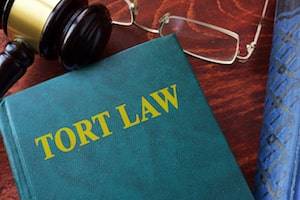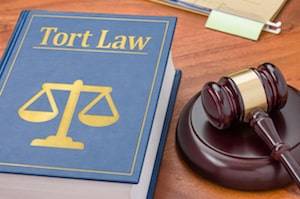Recent Blog Posts
Criminal Charges for Possession of Prescription Drugs in Wisconsin

When many people think of drug possession charges, marijuana, cocaine, methamphetamine, and heroin come to mind. However, illegal drugs are not the only ones illegal to possess. The demand for prescription drugs is high as well. Drugs like Vicodin, OxyContin, Adderall, Xanax, Valium, Ambien, and Zoloft are often sold at high prices to those without a prescription.
In the case of OxyContin, many people have become addicted to this opioid drug. Once someone who is addicted can no longer find a source for the prescription opioid or can no longer afford it, they often turn to heroin, which produces similar effects in the body.
This addiction problem has become so widespread in Wisconsin that deaths from opioids have outnumbered deaths from car accidents. As a result of this epidemic, Wisconsin police have been cracking down on all types of prescription drug possession.
The Benefits of Creating a Living Trust

If you are at the stage of your life in which you are considering how your estate will be passed on to your loved ones, one option to consider is a living trust. A living trust can accomplish many of the same objectives as a will, and it has several key benefits that wills do not have.
What Is a Living Trust?
A trust is a written document that names someone in charge to manage property for the benefit of others. A trust is classified as “living” when it is created by the property owner when he or she is alive. A living trust is also known as a revocable trust or a living revocable trust.
At any point, the person who created the living trust can change the terms of the trust or eliminate it altogether. When the creator of the living trust dies, the trust typically is not open to further change. A living trust is also known as a revocable trust or a living revocable trust.
What You Need to Know About Appealing a Criminal Conviction or Sentence
 After you have been convicted of a crime, you may feel like you have no options. In Wisconsin, if you have been convicted of a crime, you have the right to an appeal. If you believe that errors were made during your case, you should explore all of your legal options with an attorney.
After you have been convicted of a crime, you may feel like you have no options. In Wisconsin, if you have been convicted of a crime, you have the right to an appeal. If you believe that errors were made during your case, you should explore all of your legal options with an attorney.
The Wisconsin Appeals Process
The first crucial step in appealing a conviction or sentence is to file a notice of intent to pursue post-conviction relief within twenty days of sentencing. Failing to do this means that you could lose your right to an appeal.
Next, you must determine your grounds for appeal. When you appeal a criminal conviction or sentence, you must argue with great specificity what mistakes occurred during your trial. Some errors commonly alleged in appeals include:
4 Types of Negligence That Can Lead to Dangerous Truck Accidents
 Large trucks are a danger on the roads to smaller passenger cars and pedestrians. Tractor-trailer trucks weigh 80,000 pounds, on average. This makes them hard to stop, and the difference in size between vehicles is likely to cause serious injuries for drivers and passengers involved in a collision.
Large trucks are a danger on the roads to smaller passenger cars and pedestrians. Tractor-trailer trucks weigh 80,000 pounds, on average. This makes them hard to stop, and the difference in size between vehicles is likely to cause serious injuries for drivers and passengers involved in a collision.
There are a wide variety of reasons why truck accidents occur. Because of the complexity of the trucking industry and determining what entities are at fault, accident victims should always avail themselves of an attorney when pursuing compensation for injuries.
Here are four common causes of accidents involving commercial trucks:
- Driver Error. Truck drivers must drive long distances as quickly as possible. While there are rules in place to limit the amount of time they can drive without rest, drivers are under pressure to meet certain deadlines, which encourages breaking the rules. Truck drivers experience a high amount of turn over, which means there are many new drivers on the road. Also, truck drivers are expected to drive in a variety of settings, both urban and rural, daytime and nighttime. Taken together, these factors can lead to a truck driver making mistakes, and even minor truck driver errors can lead to a dangerous accident.
Wisconsin Governor Will Resume Granting Pardons in Criminal Cases
 By Raymond Dall'Osto, Steven McGaver, and Jason Luczak
By Raymond Dall'Osto, Steven McGaver, and Jason Luczak
Newly-inaugurated Wisconsin Governor Tony Evers recently said that he will begin to consider applications for and issue pardons. While it had previously been speculated that Governor Evers would reinstitute pardons, he has now publicly stated that pardons will be a possibility for those convicted of state crimes in Wisconsin.
Under the law, Governor Evers can issue pardons under his executive powers. Former Governor Scott Walker, in an unprecedented manner, chose not to exercise this power and did not issue any pardons during his time in office. His stated rationale was that he believed in the court system and that he did not want to insert his judgment on the judicial process.
Can I Recover Compensation for a Dog Bite Injury?
 If you have been bitten by a dog, you are at risk for a number of injuries. First, there is likely some sort of wound, and the degree of severity can range from superficial to severe. You also may be at risk for scarring or permanent disfiguration. Another possible injury that people often overlook with dog bites is the transmission of a disease or infection.
If you have been bitten by a dog, you are at risk for a number of injuries. First, there is likely some sort of wound, and the degree of severity can range from superficial to severe. You also may be at risk for scarring or permanent disfiguration. Another possible injury that people often overlook with dog bites is the transmission of a disease or infection.
Wisconsin Dog Bite Laws
Under Wisconsin law, an owner is typically responsible for injuries caused by their dog. It does not matter if the owner was not on the scene when the attack occurred or if the owner took steps to protect others from the dog. This type of law is called “strict liability.”
It also does not matter if the dog owner believed that the dog was not dangerous or if they did not know of any previous attacks. A dog owner may be held responsible for any injury their dog inflicts on any other person, domestic animal, or property. In addition, if it can be proven that a dog owner was told or knew that the dog previously, without provocation, had bitten a person with sufficient force to break the skin and cause permanent physical scarring or disfigurement, the owner may be held liable for double the amount of damages.
Healthcare Providers Face New Legal Risks in Prescribing Opioids
 In recent months, both the State of Wisconsin and the United States Government have put healthcare providers on notice that their prescribing practices are being scrutinized. The U.S. Attorney’s offices for the State of Wisconsin have warned high prescribers of opioids that prescribing these medications when not medically necessary could lead to criminal charges. The Wisconsin Department of Safety and Professional Services (DSPS) is currently investigating high prescribers of opioids, and these healthcare providers could face sanctions against their license.
In recent months, both the State of Wisconsin and the United States Government have put healthcare providers on notice that their prescribing practices are being scrutinized. The U.S. Attorney’s offices for the State of Wisconsin have warned high prescribers of opioids that prescribing these medications when not medically necessary could lead to criminal charges. The Wisconsin Department of Safety and Professional Services (DSPS) is currently investigating high prescribers of opioids, and these healthcare providers could face sanctions against their license.
Earlier this month, the U.S. Attorneys offices in Wisconsin sent warning letters to 180 healthcare professionals in the State who have been identified by the Government as being high prescribers of opioids. This letter stated that over-prescribing these powerful and highly addictive drugs contributes to the deadly opioid crisis that has swept the country. While this letter acknowledged that these prescriptions could be “medically appropriate,” it also warned that prescribing these drugs when not “medically appropriate” could lead to criminal charges and the loss of licensure.
In Which Types of Cases Is a Mass Tort Action Appropriate?
 Mass tort actions are especially useful in certain types of cases, as they provide an efficient way for personal injury victims to receive the compensation they deserve. Pharmaceutical and medical device claims are often brought forward through a mass tort action. This is because these products, if defective, will likely injure a large number of people.
Mass tort actions are especially useful in certain types of cases, as they provide an efficient way for personal injury victims to receive the compensation they deserve. Pharmaceutical and medical device claims are often brought forward through a mass tort action. This is because these products, if defective, will likely injure a large number of people.
What Is a Mass Tort?
While the word “tort” is commonly used in the law, many people without a legal background do not know what it means. A tort is an injurious act that occurs due to the fault of another. Car accidents and slip and fall cases are common torts, as are damages made to land or property. Thus, a mass tort action involves an injurious act or product that affects a large group (or mass) of people.
Fraud, False Advertising, and Misrepresentation Claims in Home Sales: How the Spring Melt Can Lead to a Flood of Litigation for Wisconsin Home Sellers
 Most people are relieved and ready to move on to the next phase of their lives after going through the long and stressful process of selling a home. Buyers and sellers typically have had very little direct interaction with each other during the sale process, and most sellers assume that they will never hear from the buyers again.
Most people are relieved and ready to move on to the next phase of their lives after going through the long and stressful process of selling a home. Buyers and sellers typically have had very little direct interaction with each other during the sale process, and most sellers assume that they will never hear from the buyers again.
But as sure as the first warm sunny day will melt the winter snow, so too will Wisconsin’s real estate litigation start heating up this spring. Because with all that melting snow comes another sure sign of spring in Wisconsin: damp and leaky basements. In some cases, last season’s real estate buyers are surprised to find out that their new home’s basement is no longer dry. So some buyers decide to sue the sellers after realizing how much it’s going to cost to fix their leaky basements.
Is Your Injury Claim Suitable for a Mass Tort Action?
 What is a mass tort? A mass tort is a type of action that can be brought when there is one instance of negligence that causes injury to a group of people. Mass tort actions can be brought against defendants in state or federal court. It is not uncommon for these cases to be consolidated into multidistrict litigation.
What is a mass tort? A mass tort is a type of action that can be brought when there is one instance of negligence that causes injury to a group of people. Mass tort actions can be brought against defendants in state or federal court. It is not uncommon for these cases to be consolidated into multidistrict litigation.
A judge will determine if a mass tort action can be brought in multidistrict litigation. He or she will look at how many victims are involved, if the victims live near each other, if the injuries complained of are similar, and whether there is a common cause of the injuries, such as a single accident or product.
Typical Types of Mass Tort Actions
Wisconsin law does not limit mass tort actions to certain types of injuries or certain industries to mass tort actions. That said, there are certain claims that often are successful in using a mass tort action:







